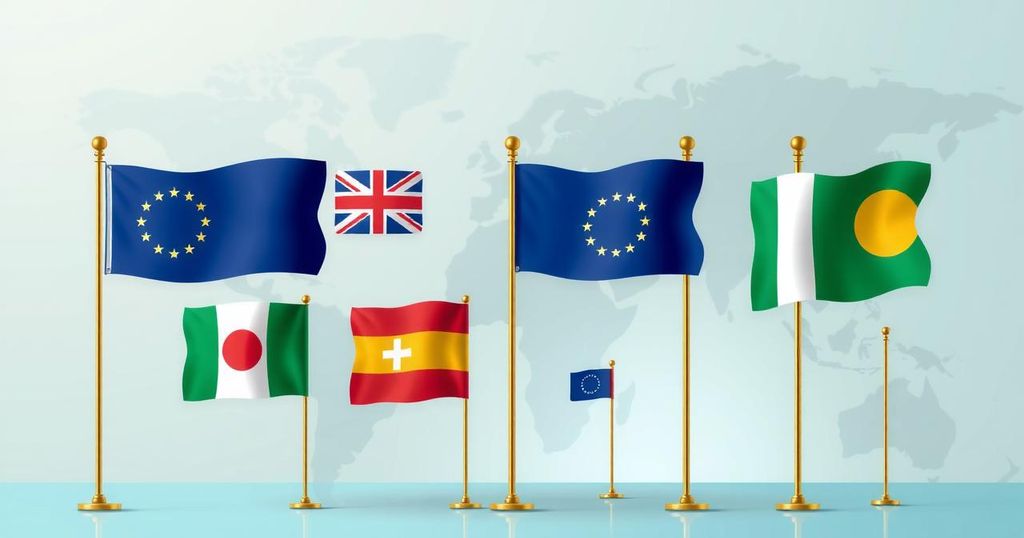Ebrahim Rasool, South Africa’s ambassador to the U.S., faces expulsion following comments about Trump administration policies. His views on white supremacist mobilization sparked backlash, leading to condemnation from U.S. officials while South African leaders expressed regret over his situation. Supporters attribute the controversy to his identity and past activism, showing the complicated nature of international diplomacy today.
Ebrahim Rasool, a veteran of the anti-apartheid struggle and currently South Africa’s ambassador to the United States, has been embroiled in diplomatic tensions following the announcement of his expulsion from the U.S. Rasool expressed a positive outlook in a message to family and friends, stating that he and his family were prepared to return to South Africa without regrets. Despite the impending expulsion, his recent remarks during a webinar on U.S. policies under President Trump were delivered thoughtfully, though they attracted controversy.
His comments criticized Trump’s alleged promotion of white supremacy, sparking divided opinions on whether he was providing an honest assessment or crossing diplomatic lines. U.S. Secretary of State Marco Rubio condemned Rasool’s remarks, labeling him a “race-baiting politician who hates America”. South African President Cyril Ramaphosa expressed regret over Rasool’s expulsion, emphasizing the significant progress achieved by the ambassador before this incident.
Officials in South Africa additionally criticized Rasool’s conduct, characterizing it as an isolated incident of a diplomat overstepping bounds. Jim Risch, chairperson of the Senate Foreign Relations Committee, echoed Rubio’s disdain, citing Rasool’s comments as disgraceful. For those familiar with Rasool’s activism and background, his frank assessment of U.S. policy was anticipated given his history as an anti-apartheid activist and his personal experiences with racial segregation.
A long-standing activist, Rasool’s political involvement began in the 1970s amidst apartheid oppression. His experiences molded his political outlook and ultimately led to his imprisonment where he met Nelson Mandela. He held various leadership roles in the African National Congress and served as U.S. ambassador from 2010 to 2015, being reappointed in 2024.
Supporters, including Faiez Jacobs, defend Rasool’s comments as objective analysis and express concern that he has faced backlash due to factors beyond just his statements, including his Muslim identity and his stance on Palestine. Academic Oscar van Heerden noted that Rasool was already facing opposition upon his appointment, citing an environment in the Trump era that weaponized diplomacy, making it precarious for those like Rasool.
Ebrahim Rasool’s expulsion from the United States highlights the complexities of diplomatic relations, especially when personal beliefs clash with political sentiments. His remarks on U.S. policies under President Trump elicited strong reactions, revealing tensions not only between nations but also regarding issues of race and representation. The response from both South African and U.S. officials underscores the delicate balance diplomats must maintain in a politically charged environment.
Original Source: www.bbc.co.uk






